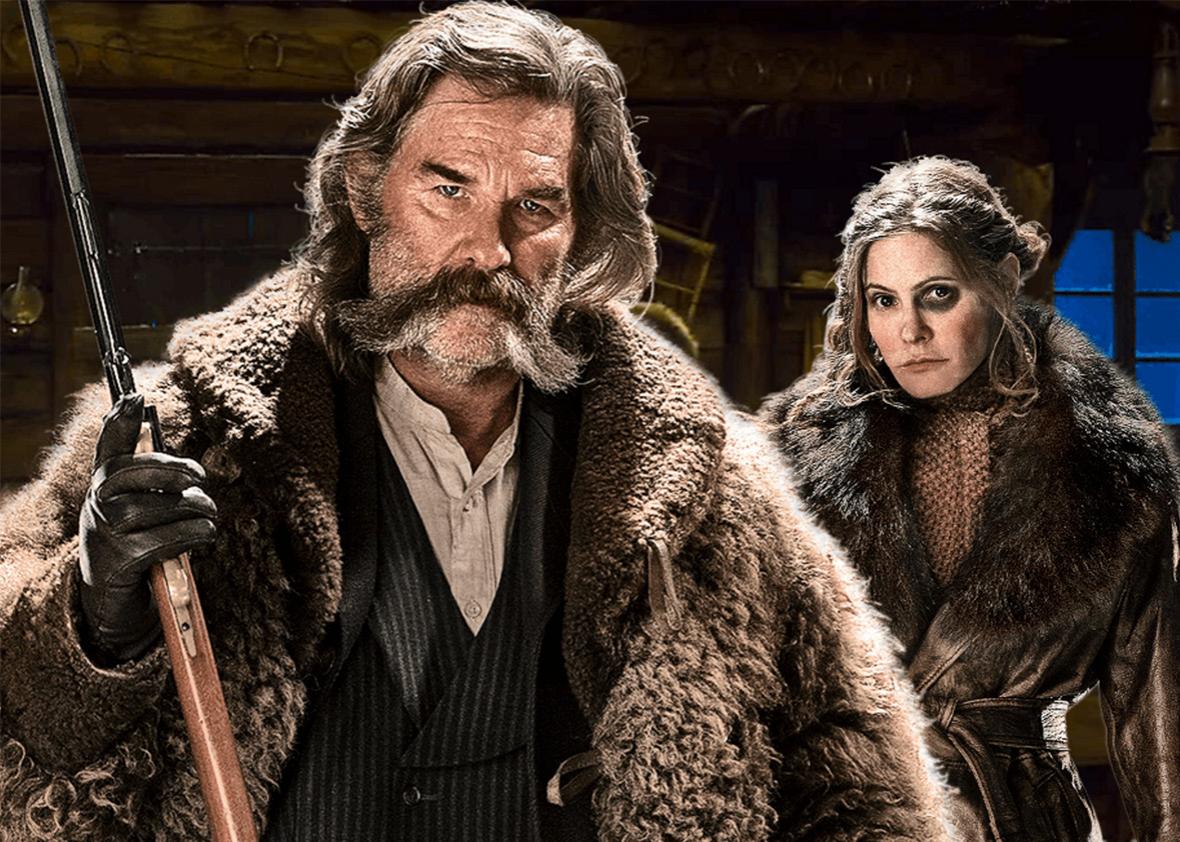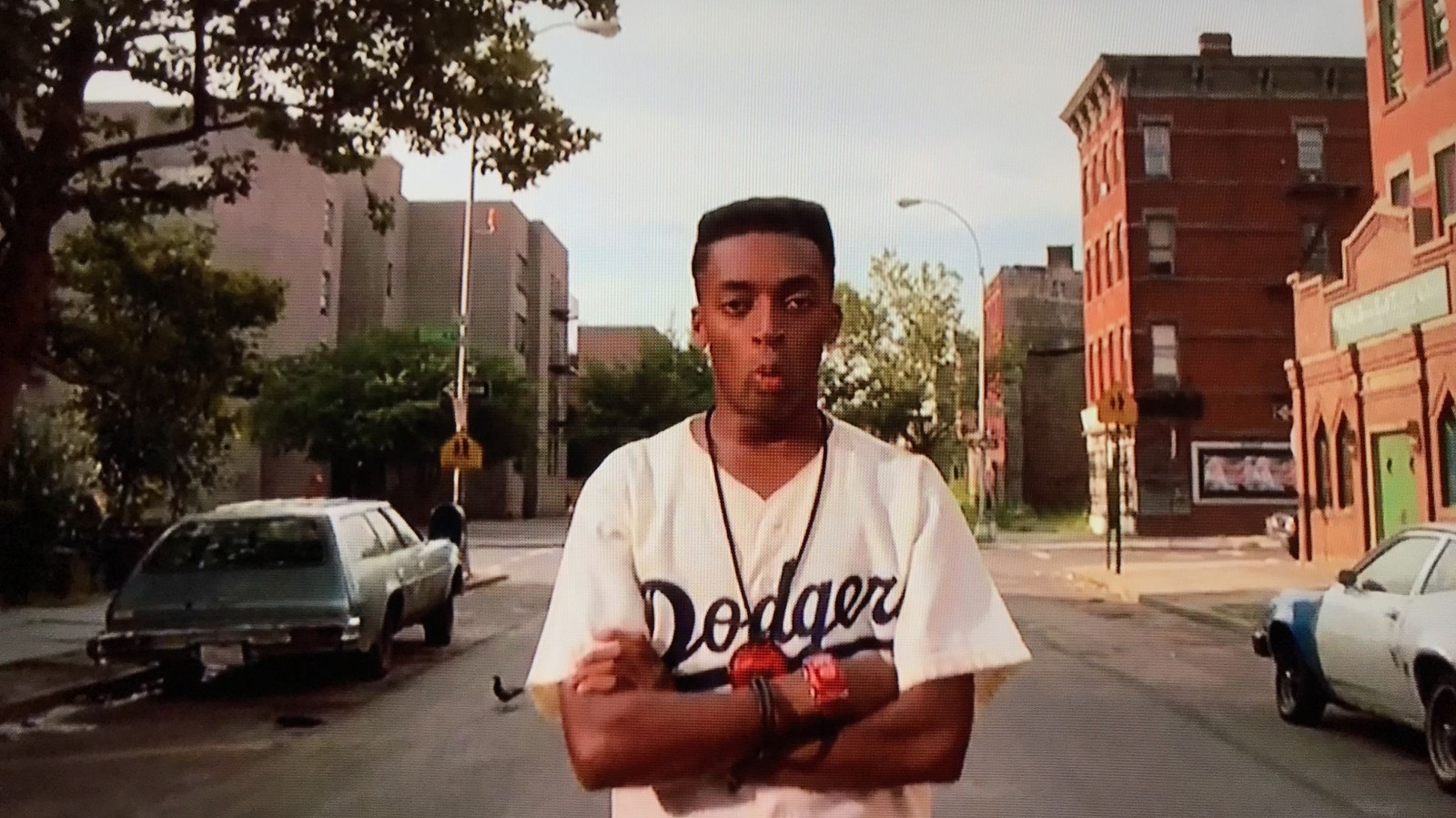Cool thread and topic to consider.
I really like both of these directors a lot, not only for their films, but also in how both have championed the medium of film as a pure art form AND their efforts in film preservation and in bringing attention to the classics to modern audiences that otherwise might not even want to mess with a film before 1990 or 1980.
While neither make my top 10 list of directors, nor would I put them on a list of personal favorites and I certainly don't idolize either as the second coming of film, the way their devour followers do, they both are wonderful filmmakers.
Of the two, I'd probably put them on par, but if I had to pick, I'd go with Spike Lee, if for nothing else, Do the Right Thing is a complete masterpiece and Tarantino has never made anything quite up to the level of that film.
I haven't seen all of their films from either director. I still need to watch a handful of Spike Lee films and I have yet to stumbled across Once Upon a Time in Hollywood from Tarantino. I do love The Hateful Eight and I consider that to be Tarantino's masterpiece. Pulp Fiction is good fun and well crafted, but how it became such a ubiquitous hit and a part of the canon and on most people's top lists of whatever, I'm sure I'll never know. I think Tarantino is just a good salesman and loves to talk about film - his work and anyone elses... which is fine, but I think a lot of people confuse some of his passion for supreme greatness, at least as far as Pulp Fiction is concerned. Tarantino I think is a direct who has gotten better with time, while Lee maybe not as much.
I did really like Da 5 Bloods from 2020 which came as a surprise... really cool film and simple premise - connecting in a bunch of old Vietnam vets with issues to a treasure hunt story with Spike Lee flair might seem odd, but it's really a neat film and I was with it clear until the very end where I thought Delroy Lindo's character going off the reservation was a bit much and too big of a tonal leap in the film, but a forgivable misstep. I felt the exact same way with Tarantino's Django. I absolutely loved it until the final shootout where it became almost slapstick with how over the top it all was. The Django shootout truly felt like it belonged in a different film like in a John Woo movie or The Matrix. Again, it was fine, but here's the thing, it undermined the "decided upon" tone of everything preceding it in the film.
Oh and Spike Lee gets props for making what is probably one of the most interesting and dare I use the term underrated films from the late 1990's He Got Game.
As far as Tarantino goes, just off the top of my head with some quick ratings without rewatches:

1. The Hateful Eight - A+ (masterpiece)
2. Jackie Brown - A
3. Death Proof - A
4. Pulp Fiction - A
5. Inglorious Basterds - A-
6. Django Unchained - B+
7. Reservoir Dogs - B
8. Kill Bill Vol 2 - B
9. Kill Bill Vol 1 - B-
Now for Lee:

1. Do the Right Thing - A++ (masterpiece AND essential viewing for anyone living in America)
2. Malcolm X - A
3. 25th Hour - A
4. He Got Game - A
5. Inside Man - A-
6. Get on the Bus - B+
7. Summer of Sam - B+
8. Clockers - NR (I know for a fact I've seen this, but it's been since I was either in eighth or ninth grade and I just can't remember it enough to even give a rough grading of the film)
So yeah, Lee if for no other reason gets it because he has made a "Citizen Kane" level film in Do the Right Thing, meanwhile Tarantino has not. Like I said, I get a lot of people love Pulp Fiction and, heck, I even give it an "A" rating because it truly is a wonderful, wonderful film that you can be damn sure I'll watch if its on and can jump right in and enjoy the shit out of it any time. It just not transcendent for me or reaches me at that gut visceral level like a film such as Do the Right Thing does or even a great noir like Billy Wilder's Sunset Blvd. It's difficult to explain, but when watching a film like Pulp Fiction I feel like I'm still in control and in the driver's seat. Whereas when I watch a film like Do the Right Thing or Sunset Blvd (since I'm using those two as examples), I'm completely at the mercy of the filmmakers and their art can emotionally and intellectually rag-doll me and take me and do whatever they want with me. They are in control and whether or not I'm a willing participant is completely beyond the point. I don't have a choice and I'm eating it up regardless.
Both directors, again, I love what they have done for the art form of film and that both do advocate for film being an art form rather than just throw away entertainment to kill a couple of hours. Obviously, if you're reading this or posting here, you likely feel somewhat the same in terms of film. Posting on a film message board forum isn't exactly something a person who just thinks of movies as idle entertainment likely does.
One of the interesting things about Lee and this is for me personally, as your mileage may vary, is that he does make very political films and he is outspoken. Tarantino is also a bit left of center, but Lee is far more vocal about his politics than Tarantino is. The neat thing that I've discovered with Spike Lee films is that despite being a political activist and advocate in a direction that is fundamentally opposed to my own views (conservative-libertarian), is HOW he includes both sides of the political spectrum in his films and gives voices to the entire breadth of sides. In watching Do the Right Thing, he never preaches to the audience or tells them how or what to think in deciding whether Mookie did the right thing... all Lee does is ask the audience to think. To a certain extent he did that too with Da 5 Bloods and I really REALLY love his critique of how capitalism and marketing has really hurt collegiate basketball and how it brought out the sharks where everyone wants to take a piece of someone else and how it critiques the nature of relationships and connections between people when we reduced ourselves to simply being transactional with one another. So even though I'm a capitalist and fear the alternative, Lee is still above to reach to me and speak to me and respect both sides of the issues, which is rare for a far-sided political leaning director (regardless of they being right or left) to be able to respect and show voices and value in sides you may disagree with. I think he puts a lot of humanity into his works. To contrast, a filmmaker like Michael Moore is one I disagree with AND one whom I find greatly manipulative, offensive, and derogatory and unfair to those opposed to his viewpoints. Moore is a hack and an ass, while Lee is the real deal and a respectful artist. I say this not to bash on Moore necessarily (although if an opportunity presents itself), but rather to highlight the strengths of what Lee does and just how rare, rare, rare it truly is.

I do need to dig deeper into his filmography, which is huge, because I've only seen about half or maybe a third of his films.



